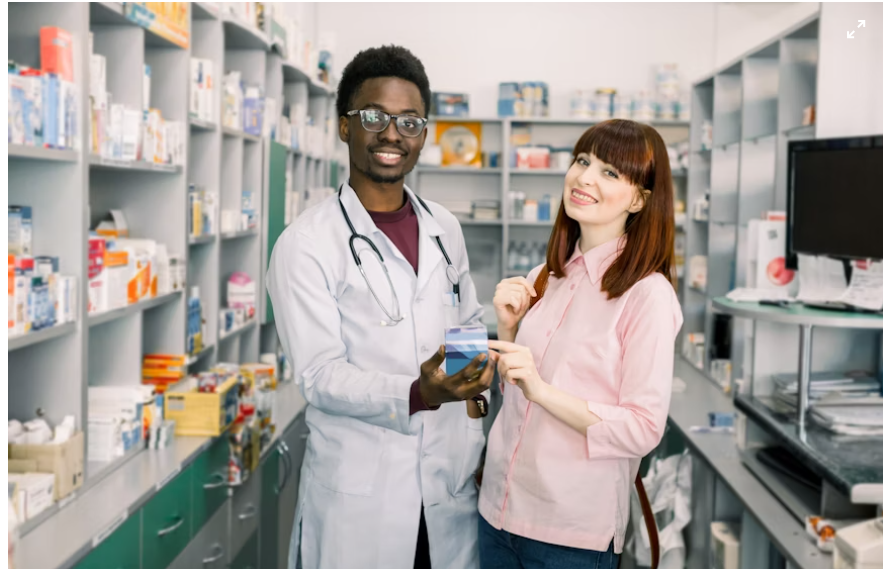Antimicrobial Resistance and the Future of Antibiotics: Innovations in PharmaTech 4.0
In today’s fast-paced world of medical science, antimicrobial resistance (AMR) has emerged as one of the most pressing health threats facing humanity. As once-powerful antibiotics lose their effectiveness, the world is staring at a possible future where routine infections could become deadly, and minor surgeries could pose major risks.
This silent pandemic isn’t looming—it’s already here. According to the World Health Organization (WHO), AMR is estimated to cause 10 million deaths per year by 2050 if left unaddressed. The misuse and overuse of antibiotics, lack of innovation in antibiotic development, and poor infection control practices have all accelerated this global crisis.
But amid these alarming statistics lies hope — in technology, innovation, and collaboration. Welcome to PharmaTech 4.0, a new era in pharmaceutical science that combines the power of artificial intelligence (AI), data analytics, robotics, and genomics to combat antimicrobial resistance and reinvent how we understand and use antibiotics.
💊 Understanding the AMR Challenge
Antimicrobial resistance occurs when bacteria, viruses, fungi, and parasites evolve and no longer respond to the medicines designed to kill them. This means that infections become harder to treat, leading to longer hospital stays, higher medical costs, and increased mortality.
Several factors contribute to this growing threat:
Overprescription and misuse of antibiotics in humans and livestock
Lack of new antibiotics entering the market
Global spread of resistant pathogens
Poor public awareness about antibiotic use and resistance
AMR doesn’t respect borders, age, or wealth—it affects us all. And if we don’t act now, we may enter a post-antibiotic era where simple infections once again become fatal.
🔬 PharmaTech 4.0: A Game-Changer
The advent of PharmaTech 4.0—an evolution powered by Industry 4.0 technologies—is revolutionizing how we develop, monitor, and deploy antibiotics. Here’s how:
1. Artificial Intelligence in Drug Discovery
AI is accelerating the search for new antimicrobial compounds. Traditional antibiotic discovery is slow and expensive, often taking more than a decade. With AI algorithms analyzing massive datasets, we can identify potential drug candidates within weeks.
For example, researchers at MIT recently used a deep learning model to discover Halicin, a novel antibiotic effective against several drug-resistant bacteria. This marked a new era in algorithm-assisted drug discovery.
2. Genomics and Personalized Medicine
Genomics allows scientists to understand how bacteria evolve and how resistance genes are passed on. By sequencing bacterial genomes, researchers can pinpoint resistance markers, enabling faster and more precise diagnosis.
PharmaTech 4.0 also promotes personalized antibiotic prescriptions, where treatment is tailored based on the genetic makeup of both the patient and the pathogen — reducing unnecessary use of broad-spectrum antibiotics.
3. Digital Health & Smart Surveillance
Digital platforms and Internet of Things (IoT) devices are enhancing surveillance of AMR in hospitals and communities. Smart sensors can track infection trends in real-time, alerting health authorities to outbreaks before they spread.
Cloud-based dashboards and electronic health records (EHRs) integrated with AI can detect prescription patterns, helping identify and reduce misuse.
4. Robotics and Automation
In the fight against hospital-acquired infections and AMR, robotic process automation (RPA) and UV-disinfection robots are reducing human exposure and minimizing microbial spread.
Automation also enables faster, more accurate lab testing — improving diagnosis and reducing unnecessary antibiotic prescriptions.
🚀 Innovative Global Initiatives
Several international and public-private initiatives are harnessing technology and innovation to fight AMR:
The AMR Action Fund, backed by major pharma companies, aims to bring 2–4 new antibiotics to market by 2030.
The Global Antimicrobial Resistance Surveillance System (GLASS) by WHO collects real-time AMR data from across the world to support early interventions.
Startups and biotech companies are experimenting with bacteriophage therapy (viruses that kill bacteria), antimicrobial peptides, and synthetic biology to develop next-generation treatments.
🧠 Education, Awareness & Responsible Use
While technology plays a vital role, the human factor remains central. Raising awareness about antibiotic stewardship—the careful and responsible use of antibiotics—is key.
What can healthcare professionals do?
Follow updated prescription guidelines
Educate patients on correct antibiotic use
Avoid unnecessary use of antibiotics for viral infections like the flu
What can the public do?
Never demand antibiotics for colds or viral infections
Complete the full course of prescribed antibiotics
Avoid self-medication and consult qualified professionals
Sustained public awareness campaigns, school programs, and digital media outreach can empower people with knowledge, fostering behavioral change at the grassroots level.
🛡️ A Call for Collaboration
Combating AMR isn’t just the responsibility of doctors or scientists. It requires a multi-sectoral approach that brings together:
Pharmaceutical companies to invest in R&D
Governments to regulate and fund initiatives
Healthcare institutions to implement effective surveillance
Academia and researchers to innovate solutions
Citizens and communities to use antibiotics responsibly
Together, we must promote the One Health approach, recognizing that the health of humans, animals, and the environment are interconnected. Reducing antibiotic use in agriculture and ensuring clean water and sanitation are just as important as creating new medicines.
💡 Shaping a Resilient Future
As we enter deeper into the digital age, PharmaTech 4.0 offers a unique opportunity to reimagine how we approach health challenges like AMR.
By embracing technology, fostering innovation, and strengthening collaboration across sectors, we can develop smarter strategies, faster diagnostics, and more effective treatments — all while preserving the efficacy of existing antibiotics.
Every step matters. Whether you’re a student, a healthcare worker, a policymaker, or a parent—your awareness and actions today will help shape a healthier tomorrow.
✉️ Stay Informed with PharmaTech 4.0
Want to stay updated on the latest trends in pharmaceutical technology, health innovation, and the global fight against antimicrobial resistance?
📩 Subscribe to our PharmaTech 4.0 newsletter for exclusive articles, expert interviews, research insights, and case studies on how technology is reshaping healthcare.
🌍 Final Words
Antibiotics once revolutionized modern medicine. Now, it’s our turn to revolutionize how we protect and preserve them.
Let’s act—not out of fear, but with foresight. Let’s build a future where innovation leads, collaboration thrives, and the power of antibiotics is preserved for generations to come.
Together, we can stop antimicrobial resistance. Together, we can save lives. 💊💡🌱









